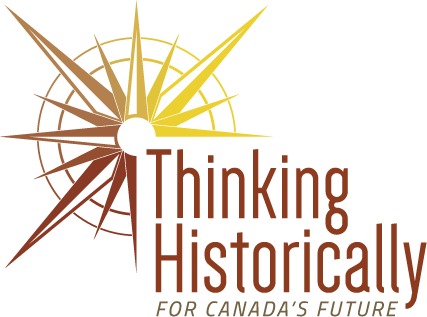Visiting Doctoral Student Program Report: Ian Alexander, PhD Candidate
Thinking Historically For Canada’s Future – Visiting Doctoral Student Program Report
Doctoral Student: Ian Alexander, PhD Candidate in the Department of Curriculum and Pedagogy at The University of British Columbia. Supervised by Dr. Penney Clark with Dr. Lindsay Gibson as committee member.
Faculty Host: Dr. Heather McGregor, Faculty of Education, Queen’s University
Dates of Visit: October 20th to November 1st, 2024
When I began thinking about the Visiting Doctoral Student Award, I considered who would be a knowledgeable and familiar host professor, if the university had a thriving and collegial community of graduate students, and if the region and community was renowned for a place based learning retreat from my usual location on the West coast. With these in mind, I asked Dr. Heather McGregor if she would host me at Queen’s University for a ten-day visit in the Autumn of 2024. Together, we developed a plan for some scholarly work and community activities for my potential visit.
As a graduate research assistant and member of the Graduate Student Committee, I had become familiar with Dr. McGregor’s work over the past few years. We were both involved in two studies in the Curriculum and Resources Cluster as well as the portraits of professional practice study in the Teaching and Learning Cluster. Since she was previously supervised by Dr. Penney Clark, I had read some of her articles and dissertation while doing my PhD over the past four years.
During my stay at Queen’s, Dr. McGregor listened to how I designed my dissertation research and offered suggestions for my forthcoming data analysis. She also discussed possibilities for organizing my findings chapters. These meetings have been immensely helpful and I will take up her advice for increasing my use of reflexive thematic analysis and considering which findings are worthy for my dissertation. We also discussed which portions of my data corpus are best suited for my research questions and theoretical frameworks, and which could be useful for articles or presentations I write in the future.
Three large events and multiple smaller meetings shaped my daily routines in Kingston. On the first full day of my visit, I was fortunate to attend The Art of Hosting leadership workshop which brought together scholars and practitioners from across departments at Queen’s. I learned about ways to facilitate institutional change and took up the opportunity in the professional discussion hubs to share my dissertation research with three small groups of rotating community members. I ended up receiving helpful advice and ideas to craft the analysis and findings sections of my study.
To start the second week, I presented in Dr. McGregor’s graduate level class Understanding Curriculum. In this presentation, I described the purpose and scope of THFCF’s analysis of provincial and territorial curriculum documents. Then I discussed some methodological considerations that graduate students often encounter as they craft research questions and appraise methods for their upcoming data collection. Through this presentation, I shared how THFCF provides high quality work experiences and funding support for many graduate students rising in the field of History and Social Studies Education in Canada.
Near the end of my visit, I presented to members of the Assessment and Evaluation Group, a long-standing research group housed in the Faculty of Education at Queen’s University. I shared my understanding of recent assessment and reporting changes in British Columbia to a group of graduate students who were interested in the new BC Proficiency Scale. This opportunity was facilitated by Dr. McGregor and Dr. Chris DeLuca and I am grateful for the invitation to speak on classroom assessment and my experience as a TA at UBC. At the session, I was pleased to see my THFCF colleagues Becca Evans, Kristen Fontaine, and Kyle Raymond among the other attendees. I have known Becca since the early days of THFCF and it has been most enjoyable to have her as another great host in Kingston.
In addition to these presentations, I had both structured and informal conversations both on campus and at locations in and around Kingston. Dr. McGregor was generous enough to show me around downtown Kingston, natural areas around the Cataraqui River, and historic Fort Henry with stunning views of the city and the watery passage between Lake Ontario and the St. Lawrence River. During this walk, she told me about her rationale and development of Social Studies and History Education in the Anthropocene. I asked about some of the projects in this network and possibilities for the future.
In addition, I participated in activities to soak in life on campus, such as watching a semi final lacrosse game between Queen’s and Carleton, reading in the comfortable Queen’s Education Library, strolling through the unique University District, and subbing in on the Faculty of Education’s soccer team with Becca and other Education grad students. This was my first trip to Kingston in over a decade and I was thrilled to return to this unique Canadian city. Every retuning visit to a place brings an entanglement of familiarity and strangeness as both a place and oneself grows up and passes through time.
Finally, I’d like to thank THFCF for this opportunity and to thank Dr. McGregor for taking up her hosting commitments with enthusiasm. I’d also like to offer my gratitude to all the people I met in the Faculty of Education at Queen’s with hopes to keep in touch. I have returned to The University of British Columbia revitalized and able to complete my data analysis, findings chapters, and further develop my theoretical framework. I also hope to assist other students in the Graduate Student Committee in applying for the Visiting Doctoral Student Award.
